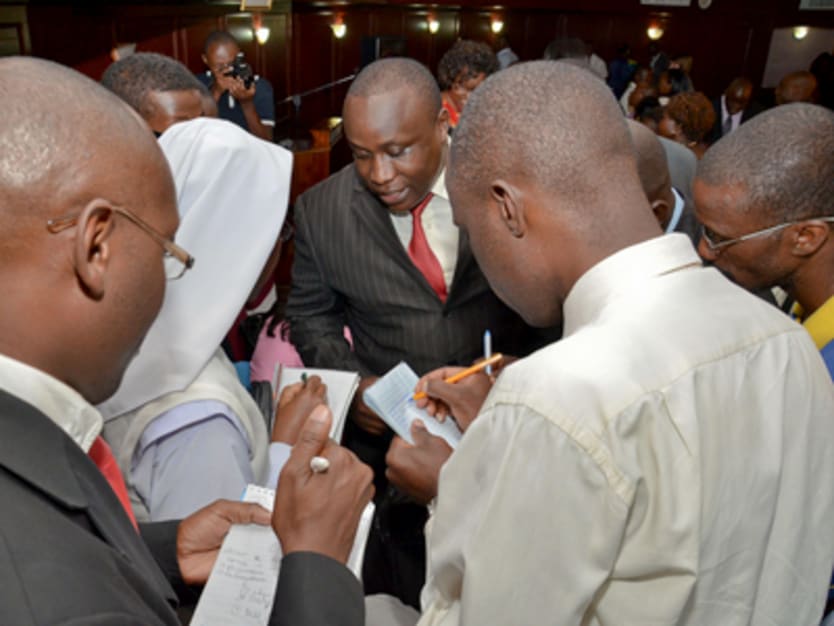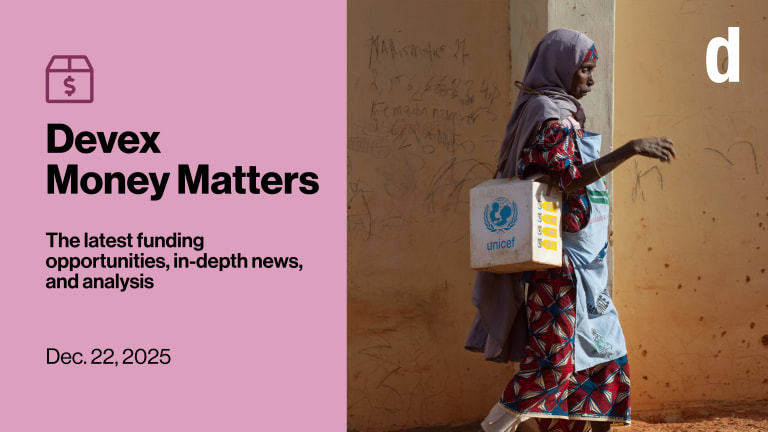
An ongoing and comprehensive procurement review and reform effort at the African Development Bank is slated for completion by the end of 2014 — and officials hope it will “catalyze” other public procurement updates across the African continent.
The AfDB’s reform package will aim to provide funding for partner country capacity building, a greater focus on sustainability, value for money, joint projects with other multilateral development banks, and solutions for “complex” procurement services within the AfDB itself, according to Director of Procurement & Fiduciary Services Vinay Sharma.
The move comes at the same time other multilateral banks and development institutions are reviewing and updating their procurement procedures and policies, some of which — like the AfDB’s — have remain virtually unchanged for decades despite seismic shifts in the nature of development financing and partnerships in recent years.
On top of the bank’s own internal review, Sharma noted there are also plans to provide African partner countries funding and technical assistance for capacity building to help them reach the new standards the AfDB intends to set.
What does this mean for implementing NGOs and consulting firms? With the reforms in place, both AfDB and African countries’ public procurement systems could place more weight on “best value” selection criteria and overall “life cycle” costs of procured goods and services than on achieving the lowest possible cost at the time of the procurement.
“Using life cycle costing, using best value for money is perhaps going to become more center stage now in the new policy than it has been in the past,” Sharma told Devex.
Reform, not overhaul
Not only the AfDB has sought to help African government’s calculate the long term costs of their purchases and revisit the criteria by which they select goods and services — and the bidders that provide them — for public procurement.
This week, the U.S. Trade and Development Agency — which promotes business opportunities for U.S. companies in development sectors abroad — is sending a delegation to Botswana to train public officials on the use and utility of best value criteria in hopes of making U.S. exports and services more competitive there.
What effect, if any, these efforts and any new AfDB standards could have for the balance of influence between Chinese and Western exporters and investors in Africa’s publicly procured infrastructure remains unclear at this point.
The AfDB is planning add to and build on — not replace — the bank’s existing four basic procurement “principles:” economy and efficiency, transparency, equal opportunity, and the promotion of local contracting capacity.
“Clearly, the importance of these is not going away,” Sharma said. “What we plan to do is take into account some of the things that are probably implicit but have not been explicitly said and therefore need to be said explicitly.”
The new priorities are expected to reflect “sustainability issues,” which aligns with the overarching framework of the post-2015 development agenda, “value for money,” and “proportionality,” the latter of which, as the official explained, “means that complex things would need to be procured differently from not so complex things.”
Ripe for reform
According to Sharma, the occasion of this reform effort was a growing recognition within the AfDB that existing policies no longer served a more complex development marketplace, and were becoming too rigid to allow the bank to deliver on its potential.
“What we had found was that over a period of time the [procurement] policy had acquired a lot of characteristics that were beyond just policy,” he said. “It had started acquiring the characteristics of procedures … They had started becoming somewhat prescriptive, somewhat inflexible.”
For the AfDB, a fairly rigid, prescriptive set of procurement procedures used to address adequately the fairly simple development purchasing needs that used to compose most of the bank’s procurement portfolio. But as new entrants into the development landscape have necessitated new kinds of partnerships and as purchasing needs have changed, the AfDB’s existing procurement regime has become more restrictive.
Now, Sharma and his team are looking for ways to achieve “greater flexibility, without reducing standards,” so that the bank’s procurement systems can better serve its growing needs when it comes to more “complex” purchases and partnerships.
This is why he said the AfDB expects this round of procurement reforms will “directly and very profoundly affect the procurement of things that are high value and high complexity,” noting that complexity arises both from the environment the AfDB works in — which includes both low- and middle-income nations, stable and post-conflict countries, as well as from “the complexity of what we’re procuring.”
Where in the past the bank required procurement mechanisms for “a world that had fairly simple supply lines,” now it is tasked with structuring more complex deals, like public-private partnerships and turnkey construction projects.
Read more development aid news online, and subscribe to The Development Newswire to receive top international development headlines from the world’s leading donors, news sources and opinion leaders — emailed to you FREE every business day.








